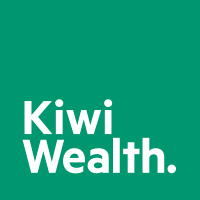Apple has finally announced its long-anticipated content bundle Apple One. So what do you get, and for how much?
What is Apple One?
Apple One is a new content “bundle” that gives you access to the company’s music, TV, games and storage offerings via a single subscription. It was announced this week in a virtual briefing filmed at Apple’s California headquarters where it also launched its new smartwatch and iPad products.
What services does the bundle include?
Apple One offers four services:
- Apple Music, which allows you to stream songs ad free and download them to listen offline. It’s pretty similar to Spotify Premium and is valued at $14.99 per month.
- Apple TV Plus, which is the company’s video-on-demand service which includes a bunch of shows exclusive to the platform, just like Netflix. The service is valued at $8.99 per month.
- Apple Arcade, which gives you all-you-can-play access to games with no ads and no in-app purchases, also valued at $8.99 per month.
- iCloud, which is Apple’s storage solution for photos, videos and files, gives you 50GB valued at $1.69 per month (or 200GB on a family plan valued at $4.99 a month).
In Australia, Canada, the UK, and the US, Apple News Plus and the new Fitness Plus will be included in a “premier” option. New Zealand, sadly, will be missing out (for now).
How much will it cost?
Apple One will cost $23.95 per month, which is $10.71 less if you bought all four services separately. There’s also a “family plan” for $31.95 per month which can cater for up to six people. So if you can find five other friends/colleagues/actual family members to share a subscription with you, you’ll only have to pay $5.32 each.
How does it compare to other content bundles on the market out there?
In the US, comparisons have been drawn with Amazon’s Prime membership which offers customers free delivery and exclusive offers for online shopping, as well as access to TV shows, movies, games, books, and music via a single monthly subscription.
In New Zealand, we can draw parallels with Sky which offer a range of TV packages that give you the option of adding sports, movies and features such as MySky+ to a $25.99 Sky Starter package. You can also do this via Vodafone which offers a Vodafone TV and broadband bundle starting at $97.99 for a 12-month term. Adding Sky TV channels will bump this up to well over $120 per month.
Why is Apple doing this? What’s the rationale behind Apple One?
For a few years now, Apple has been working towards growing the services side of its business rather than just the hardware devices. Because consumers are holding onto their phones for longer, Apple realised it needed to diversify its offerings. New iPhone launches simply don’t spur sales in the same way they once did a decade ago, and subscription packages like Apple One can be a great source of consistent revenue.
As The Verge points out, bundling services is a good way to cross-promote: people might want Apple Music but not Apple TV Plus, but bundling Apple TV Plus with Apple Music could help the company drive up overall usage of its new entertainment platform while also collecting monthly revenue. In essence, it’s trying to create an ecosystem of products that makes it hard for people to leave, not unlike how Facebook does for social media and Google’s G Suite does for business productivity. Why bother posting on Snapchat when you can use Facebook/Instagram Stories, right?
OK, but will it be a flop or not?
Mark Mulligan, a media and technology analyst, reckons there’s a pretty good chance it’ll do quite well, writing on his blog that a relatively low-cost bundle that gives you video, music, games and storage “will have strong appeal to cost-conscious consumers who are loathed to drop their streaming entertainment but need to cut costs”. And like Amazon’s Prime bundle, he says Apple One is well placed to weather the recession. “They (content bundles) may not be recession-proof – after all, entertainment is a nice-to-have, however good the deal – but they’re certainly recession resilient”.
So when is it going to be available?
As of yet, there’s no set date. We only know it’ll be “later this year”.


